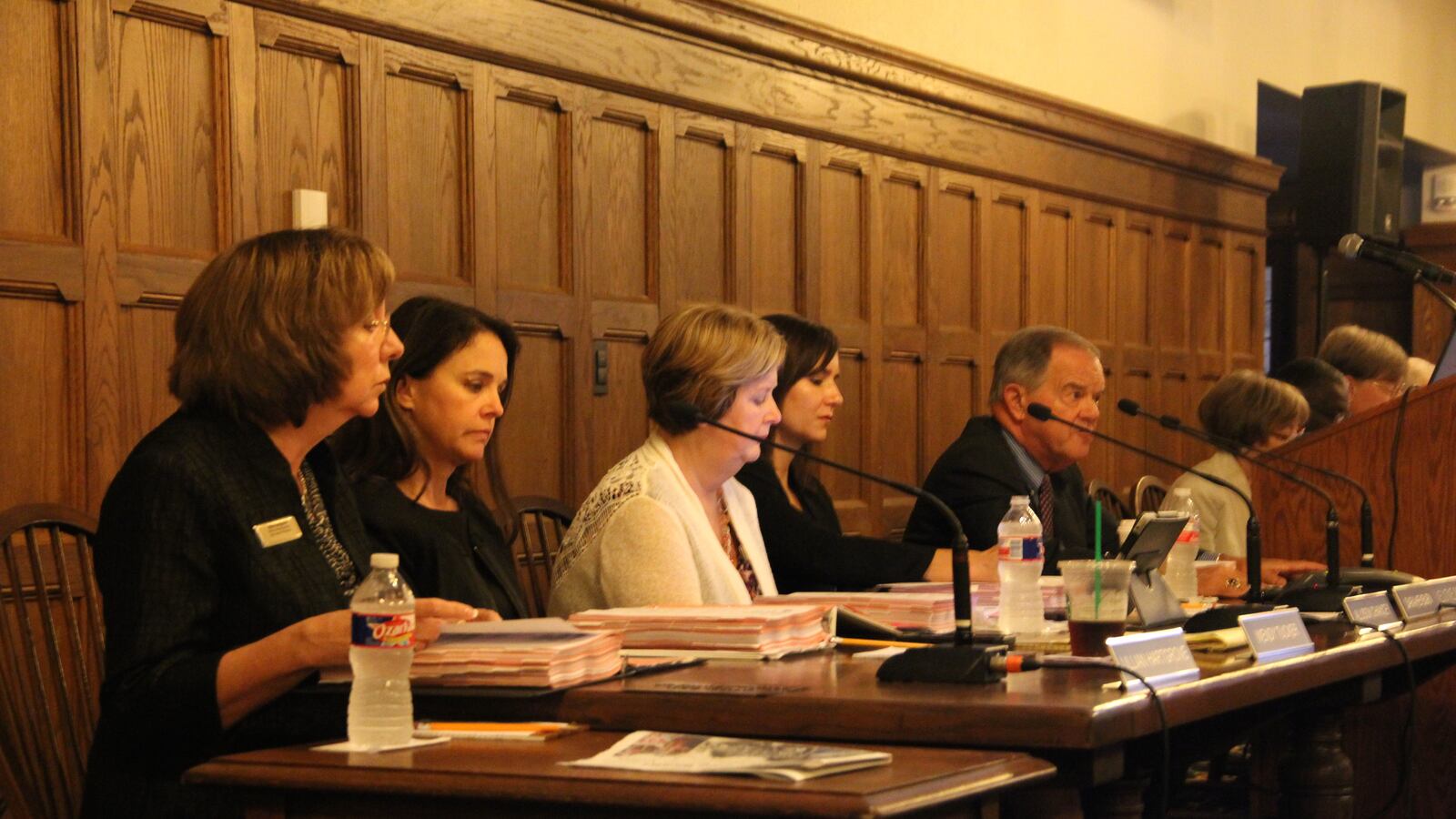The State Board of Education on Friday approved an appeal from national charter operator KIPP to open two new schools in Nashville, overruling the local district board after determining that KIPP “meets or exceeds the standard” in all criteria.
However, the state board voted to uphold the Nashville district’s denial for Rocketship, another established charter network that already has two schools in Nashville, one of which opened this fall.
The unanimous vote on KIPP represents the first time that the State Board of Education has overturned a district board’s decision on charter school expansion in Tennessee since a 2014 state law granted the state board with authority to authorize charters in districts with at least one low-performing school.
Sara Heyburn, executive director of the state board, recommended this week that the body approve both KIPP schools.
“It’s clear in the law that it’s a high bar by which we have to judge appeals at the state board level, and so again we’ve done our due diligence and gone through all the objective evidence … looking at network data across the United States and other KIPP schools. And in all instances, we found they meet or exceed standard in academics, operations, financial plans and in the portfolio network,” Heyburn told the board Thursday during a work session in Memphis.
In a split vote, the Nashville board rejected KIPP’s application in August. KIPP leaders had asked to open the schools anytime within the next five years, which local officials said was too far in the future to reasonably decide.
The state board’s decision to overrule the local district drew immediate criticism from several members of the district board for Metro Nashville Public Schools.
“The [Department of Education] and State Board of Education, over the last few years, have shown an increasing desire to get into the business of local school systems,” said Will Pinkston, a vocal critic of Nashville’s growing charter sector. “They’re frankly just not qualified to make decisions about what’s going on in cities and counties.”
Amy Frogge, another Nashville board member, said she believes Friday’s decision in favor of KIPP comes at the expense of traditional Nashville public schools by directing more money and resources to charter operators.
“I am gravely disappointed that an appointed state board is considering removing local control of schools and overturning a well-reasoned, thoughtful decision by democratically elected representatives,” Frogge said. “This is not about the best interests of our students or about parent ‘choice.’ It is a radical agenda aimed at privatizing public schools, catering to the needs of corporate charter school chains, and dismantling public education.”
Heyburn, presenting staff recommendations to the board on Thursday, said the expansion of KIPP would not impact the local district financially.
“The state board staff reviewed all documentation submitted with regard to the fiscal impact of the school and ultimately concluded that there was insufficient evidence to prove that KIPP Nashville Middle and KIPP Nashville Primary School would have substantially negative fiscal impact on the school district,” she said.
The Nashville board and KIPP now have 30 days to decide whether the new KIPP schools will be authorized by the district board. If there is no mutual agreement, the state board will become the authorizer.
Pinkston said Metro Nashville’s board also might consider taking the matter to court. “When you’ve got a recalcitrant board, legislature, that passes that law, sometimes the only place to go is the third branch of government — the courts,” he said.
Since the State Board of Education became an authorizer last year, it has heard 11 appeals, mostly from younger, less established operators. The appeals from KIPP and Rocketship represented a departure. KIPP was established in 1994 with schools in New York City and Houston. California-based Rocketship launched in 2006.
Concurring with its staff recommendation, the state board voted 8-1 Friday to deny Rocketship’s appeal.
“This one was hard,” Heyburn told the board on Thursday. “This one met the standard in all areas except the portfolio review section, and in that case again there are a number of reasons to be very optimistic about this school they’re currently operating in Nashville.”
The Nashville board had rejected Rocketship’s application because, despite high growth scores at its first Nashville school, its overall academic performance this year was poor, according to board members.
“They did have a level 5 TVAAS composite, which is the highest score overall you can get in growth,” Heyburn said. “But their achievement scores are really low, some of the lowest in their cluster and in the district.”
Board member Wendy Tucker cast the lone dissenting vote. “My struggle is with the fact that Rocketship’s current school — the school we have data from — while their achievement levels are not where we need want them to be, their growth is some of the highest in the city,” said Tucker, who is a co-CEO of Project Renaissance, a Nashville nonprofit organization aimed at improving educational outcomes for Nashville schoolchildren.
Rocketship regional director Shaka Mitchell said he was disappointed with the board’s decision but respected the process.
“One of the things that the district made it’s biggest case around is that we didn’t have a track record of success,” Mitchell said. “I’m confident that if we’re sitting here this time next year, it’s going to be a different outcome. Our schools are going to keep growing; our students are going to keep showing results.”
The board also voted to uphold district denials of charter applications for International Academy of Excellence in Nashville and for Connections Preparatory Academy in Jackson.


